Table of Contents
There is no miraculous protein elixir after which your muscles will magically grow and fats disappear, but it can really help you achieve these goals. It is a rich and pure source of protein that facilitates weight loss and muscle growth. But that’s not all, high-quality protein powders also contain valuable protein fractions, which can also be beneficial for your immunity. Let’s take a look at what protein is the best for weight loss and what benefits its consumption brings.
What is protein?
Protein powder is undoubtedly the most popular dietary supplement, which you can rightly find in the household of almost all strength athletes and other active people. Whey protein is one of the largest staples in the field of sports nutrition. It contains high quality proteins with an excellent amino acid spectrum. These are, for example, essential for muscle regeneration and growth, support of the immune system and maintaining the overall health of the body.
The already mentioned milk, beef, soy, eggs and other protein-rich foods is mostly used for the production of protein powders. The type of raw material determines the amino acid content and also how your body digests and uses the protein. On the market, you will most often encounter protein in the form of an easily soluble powder. This is also often used to enrich various protein drinks and foods, such as ready to drink beverages or protein snacks in the form of bars, biscuits, chips or chocolate.

5 reasons why you should take protein when losing weight
The diet of each of us should provide enough of all nutrients in a varied and balanced diet. Quality protein powder will help you achieve a sufficient protein intake, which can help with weight loss. Let’s take a look at how exactly it helps reduce fat.
1. Protein fills you up more than carbohydrates or fats
Of all macronutrients, protein has the highest satiety capacity. Thanks to this, you will usually eat even less food, and you will feel nice and full. This will reliably help drive away the thoughts of the sweet dessert you were craving. This superpower of protein can lead to a spontaneous reduction in total energy intake during the day and almost painless weight loss. [1–2]
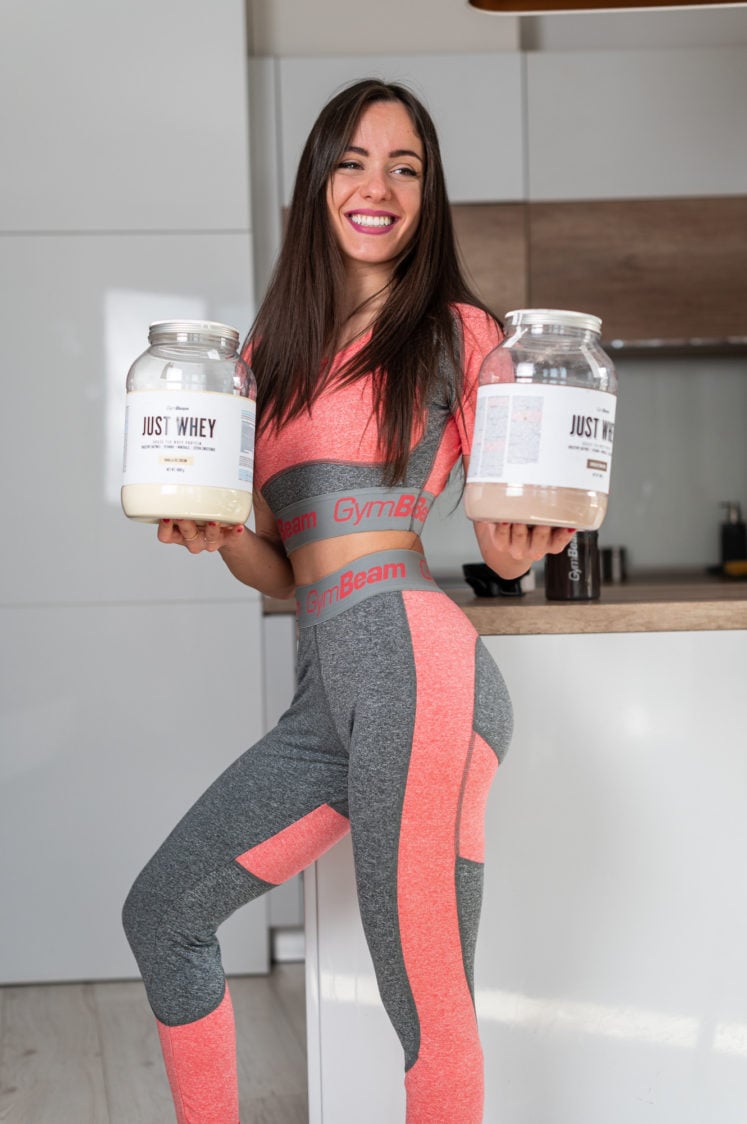
2. Reduces the constant appetite for something sweet
In addition, protein can affect hormone levels, which are associated with the desire to eat and control the amount you eat. For example, it reduces the amount of ghrelin, often referred to as the “hunger hormone”. Its higher concentration in the body can be the cause of not feeling full and satisfied even after you’ve had a three-course meal. Protein will help you with a sufficient intake of proteins, which can tame the constant cravings for something sweet. [3–4]
3. Supports the growth of muscle mass and protects it from being used as the fuel for energy
Everyone knows that protein is important for muscle growth. It’s just not possible without it. It’s like trying to build a house without individual bricks or wooden panels. But that’s not all. The importance of protein increases during weight loss. Adequate protein intake helps protect your sore muscles from being used as a fuel for energy.
Another stimulus that gives the body a signal not to get rid of muscles is strength training. When you master this effective combo, you can be sure that you will lose the fat you want to lose, while keeping the muscles you want to show to the world. [5–8]
4. By digesting protein, you burn the most calories of all macronutrients
Wouldn’t it be nice to eat but somehow still burn energy? This is exactly what protein works.
Of all three macronutrients, it has the greatest thermic effect of food, which has a value of 20-30% depending on the type of protein consumed. This means that out of 100 kcal, you can actually use about 70-80 kcal. The rest is spent on the energy your body consumes to metabolize it. This thus forms another part of the puzzle of total energy expenditure and the deepening of the caloric deficit. [9]
5. Supports fat burning
Higher protein intake also often results in more fat being burned during weight loss. According to some studies, slightly increased protein intake is also associated with higher success in maintaining weight loss. It can be due to the combination of the already mentioned factors, but also due to its influence on the growth and maintenance of muscle mass. Its “operation” costs the body extra energy, especially during exercise. [10–12]
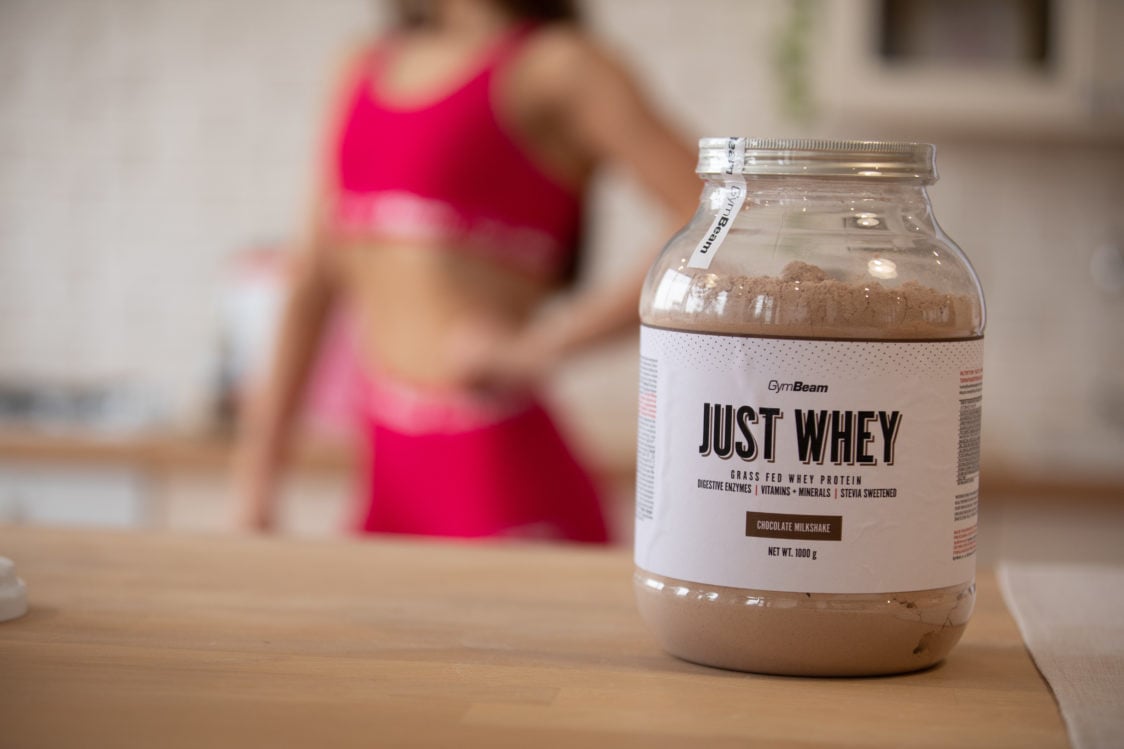
What other benefits does protein have in the diet?
- It is a rich source of protein and has a lower proportion of fat and carbohydrates. The specific amount depends on the type of protein itself and the overall composition of the product.
- Quality protein contains all important amino acids, including BCAAs. Intake of all essential amino acids is important for overall health, immunity and also the growth and regeneration of muscle mass.
- It will help with more accurate protein intake. You can easily find the amount of protein contained in the protein supplement in the table of nutritional values on the product label or in the e-shop. One scoop of protein typically contains 20-25 g of protein.
- It is suitable after training or at any time during the day to supplement protein. Protein powder is the fastest way to quickly regenerate muscles damaged by training and to supply building materials for their repair, strengthening and growth. After exercise, it is advisable to take a protein mixed with water, which is absorbed faster than with milk. You can also use it to prepare a quick shake, which can, in addition to protein, include fruit, oat flakes and a bit of peanut butter. After a few seconds in a blender, you have quite high-quality and nutrient-rich food right in your hands.
- You can drink the protein with water, milk or add it to your food. After training, it is worth drinking protein with water for faster absorption, but during the day, you can mix it with milk to make it even tastier. You can also add it to desserts or breakfast porridges to increase the protein content and create a nutritionally balanced meal. Unflavoured protein is also suitable, for example, for increasing the protein content of pizza dough.
- It will add flavour to your food. Proteins are available in an inexhaustible number of flavours, which will improve the taste of pancakes, crêpes or porridge.
You might be interested in these products:
Ideal protein powder for weight loss
Quality protein powder contains only a few raw materials. Among them, in the first place you will find the most important ingredient – the source of protein. It can be, for example, whey, soy or pea concentrate or isolate, which is then typically followed by flavourings, such as cocoa. Next are aromas, colourants and sweeteners (e.g. sucralose or stevia).
Some proteins are enriched with selected vitamins, minerals and digestive enzymes. There are even proteins on the market that contain popular fat burners such as L-carnitine or CLA. In particular, make sure that the product contains only a few grams of fat and sugar and no unnecessary ingredients, such as large amounts of thickeners or fibre. When it comes to protein supplements, the highest possible protein content is the main thing to look for. [13]
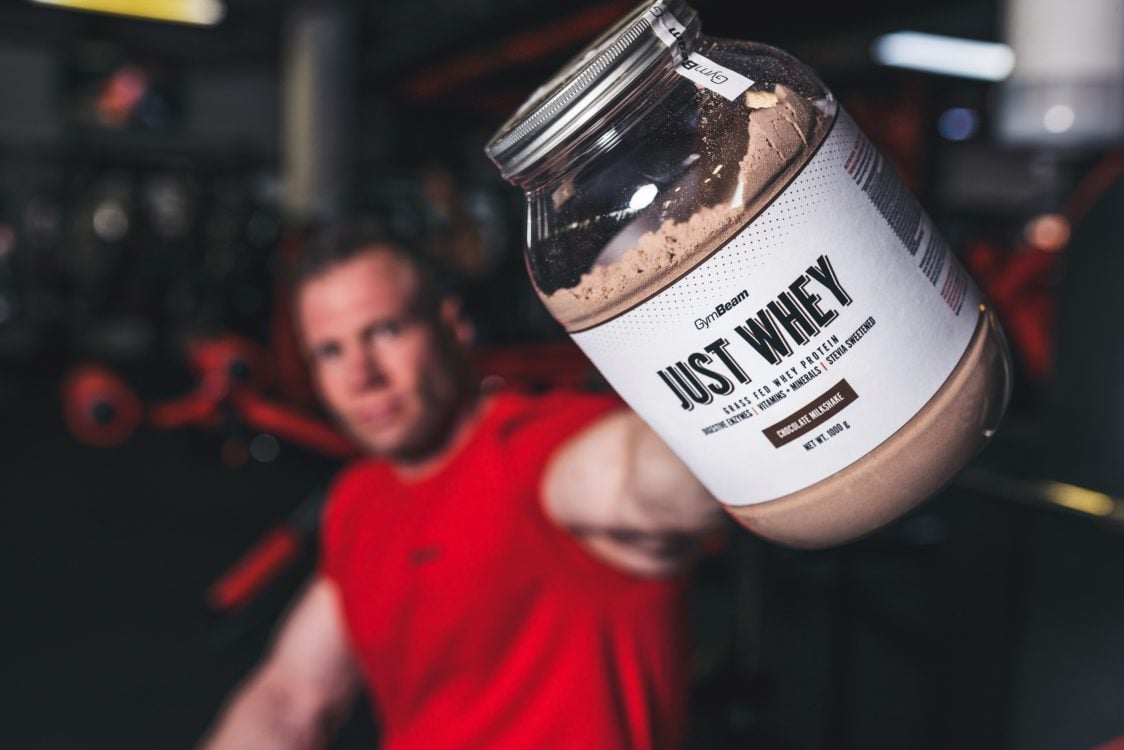
Protein powders are made from milk, eggs or soy. Which one is better?
There are a total of 20 amino acids, 8 of which are unconditionally essential. We have to eat them in sufficient quantities every day because our body cannot make them itself. The body uses amino acids to build muscle mass or to maintain other important functions, such as the body’s defence mechanism. Therefore, it is ideal to pick a protein supplement with a sufficient proportion of all essential amino acids or to combine several types of protein that complement each other in the amino acid spectrum.
1. Whey protein
It is one of the most popular protein powders on the market, and it is not for nothing that it is one of the best-selling proteins in the world. It is made from milk, has excellent usability and the proteins contained have a high biological value thanks to the optimal representation of all essential amino acids.

You can find it in 3 forms:
- Whey concentrate (WPC) – typically contains 70-80% of easily absorbed protein. It is the best choice if you are looking for an affordable and high quality protein.
- Whey isolate (WPI) – has a higher protein content, usually 80% or more. Most often, however, the protein content is in the range of 85-95%. Thanks to a higher degree of filtration, it contains barely any fat and milk sugar (lactose). This means that it can also be used by people with lactose intolerance.
- Whey hydrolysate (WPH) – due to hydrolysis, this is the fastest digestible protein. Thanks to this, in comparison with others, it ensures faster regeneration after a physical activity. It is especially suitable for the most demanding athletes, for whom fast regeneration is key.
Thanks to the high content of quality proteins and the complete spectrum of amino acids, whey protein is enjoyed not only by athletes, but also by people who are trying to lose weight. [14]
2. Micellar casein
Micellar casein is also made from cow’s milk. However, it is digested more slowly than whey protein, sometimes for up to 7 hours. Thanks to this, it ensures a gradual supply of amino acids for the needs of the organism. It will fill you for a longer period of time, which is a highly valued feature in a reduction diet.
Due to longer digestion, it is one of the so-called night proteins. It can be used for long periods with no food during the night and also in cases where you know that you will not be able to get a solid meal in several hours. It can serve as a quick snack. [15–16]
3. Beef protein
Beef protein is typically hydrolysed and contains more than 90% protein. As a result, it has good digestibility. Its weight loss effects have not been studied as much as milk proteins. But beef protein may be an ideal option for people who cannot tolerate milk protein. [17]
4. Egg protein
The protein supplement made from egg protein also offers a high-quality protein content and a minimum of sugar and fat. It is not digested as fast as whey, but has an excellent spectrum of amino acids and is one of the most valuable sources of protein ever. It can be used reliably in the diet of people who are trying to lose weight. Same as beef protein, it is also suitable for people who are intolerant to milk proteins. [18]
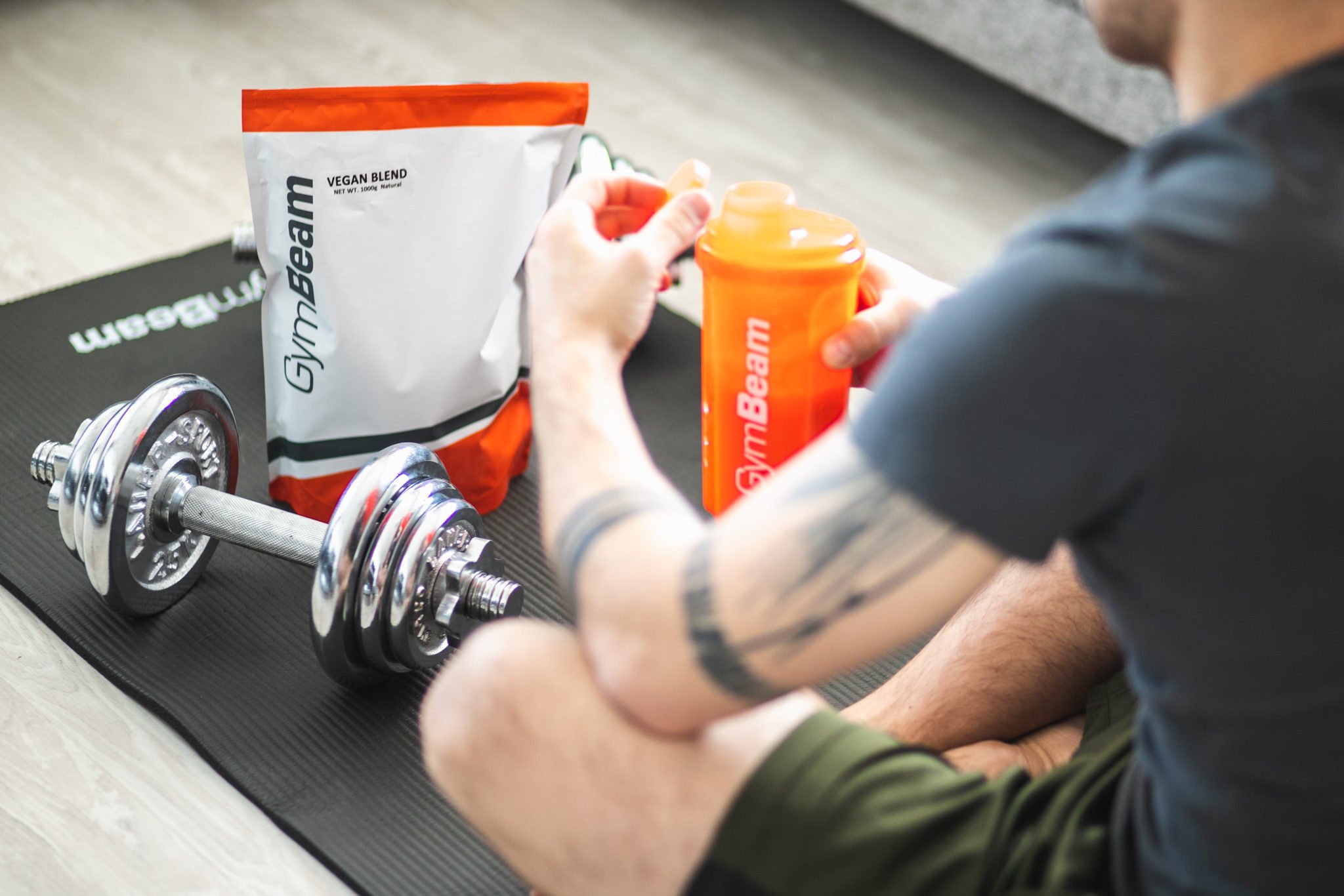
5. Multicomponent protein
Typically, there are animal or plant multicomponent protein powders. It is most often a combination of whey concentrate, isolate and hydrolysate to improve the properties of the resulting protein. In the case of plant proteins, this is mainly due to the improvement of the amino acid profile of the protein supplement.
6. Plant proteins
Plant-based proteins are a great option for those who do not want or cannot consume animal proteins. However, some proteins do not contain all the essential amino acids in the optimal ratio. At the same time, it is important to count on a typically lower protein content and lower usability compared to animal proteins. For example, to achieve comparable results with whey protein, higher servings are recommended. This is usually just about two scoops of plant protein. This guarantees the intake of the most commonly talked about 10-12 grams of essential amino acids.
If you choose a vegetable protein, you can choose soy, pea, hemp or rice protein and combine them. For example, rice and hemp proteins are better supplemented with pea protein, mainly because they have suboptimal amounts of leucine and other essential amino acids. [19]
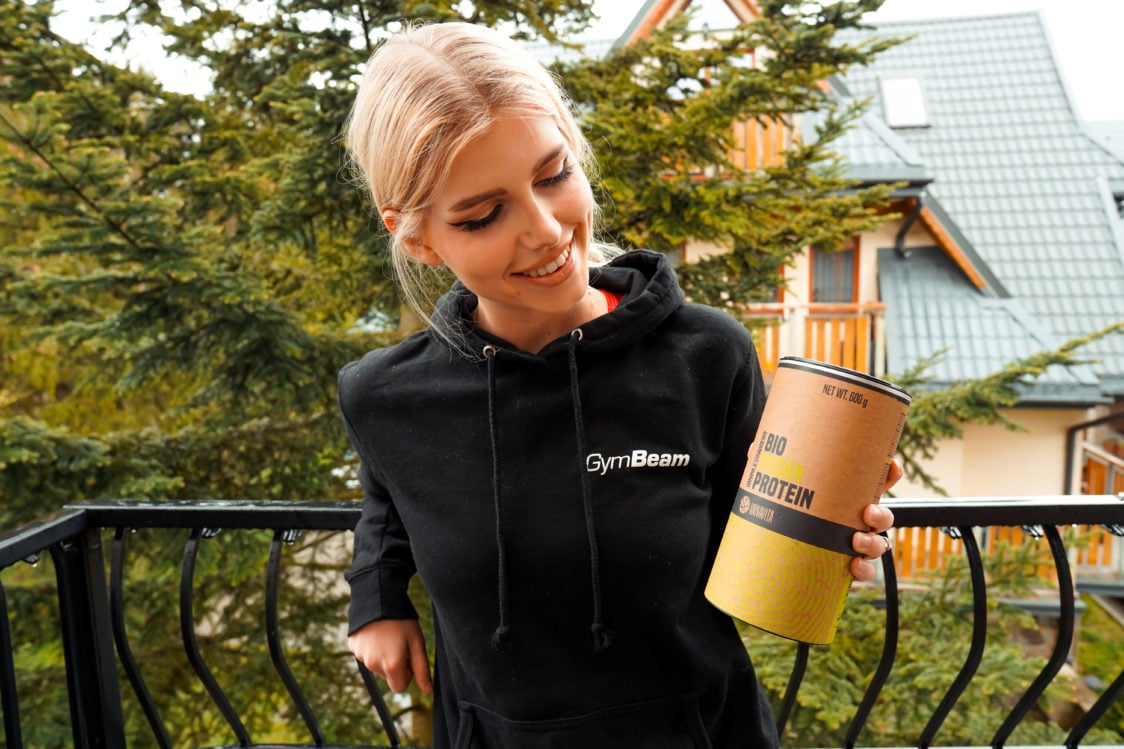
Which protein is more suitable for weight loss – whey or plant-based?
The best protein for weight loss is one that contains as many quality proteins as possible with a favourable spectrum of amino acids in the optimal ratio. Furthermore, such a protein should not contain any unnecessary added substances.
When we consider these aspects, we can, with a clear conscience, declare whey isolate the winner.
Closely second comes the whey concentrate or hydrolysate. In addition, the effects of milk proteins in relation to weight loss or muscle gain are backed with more scientific research.
In case of intolerance of milk protein or exclusion of animal proteins from the diet, we can recommend egg or high-quality plant-based protein.
How to use protein supplements?
Take protein 1-2 times a day in an amount of 20-40 g. For best results, include it before or after training. During the day, you can use it to supplement protein whenever you need to. In addition, you can mix it in your morning porridge, shake or pancakes. [20]

What should you remember?
If you are trying to lose weight or are planning to do so, make sure you get enough protein. It can help you better manage the caloric deficit, which is a basic condition for weight loss. Taking the right amount of protein can be really challenging, especially when losing weight. But a high-quality protein powder can help with that. It is a concentrated source of protein with a minimum content of fats or sugars. As a result, a single serving of protein powder has typically only about 120 kcal. It effectively replenishes proteins with a minimum amount of calories.
It is also easy and quick to use, and you can also mix it into your food. It will also help protect muscle mass from being used as fuel for energy.
Do you monitor your protein intake and do you use a protein supplement? Which one is your favourite? Let us know in the comments. And if you liked the article, don’t forget to share it with your friends.
[1] Pesta, D. H., & Samuel, V. T. A high-protein diet for reducing body fat: Mechanisms and possible caveats. – https://doi.org/10.1186/1743-7075-11-53
[2] Halton, T. L., & Hu, F. B. The effects of high protein diets on thermogenesis, satiety and weight loss: A critical review. – https://www.ncbi.nlm.nih.gov/books/NBK70804/
[3] Ghrelin and Obesity: Identifying Gaps and Dispelling Myths – https://www.ncbi.nlm.nih.gov/pmc/articles/PMC5756630/
[4] Healthline. Ghrelin: The „Hunger Hormone" Explained – https://www.healthline.com/nutrition/ghrelin
[5] Verreijen, A. M., Engberink, M. F., Memelink, R. G., van der Plas, S. E., Visser, M., & Weijs, P. J. M. Effect of a high protein diet and/or resistance exercise on the preservation of fat free mass during weight loss in overweight and obese older adults: A randomized controlled trial. – https://doi.org/10.1186/s12937-017-0229-6
[6] The effect of protein intake on muscle maintenance during weight loss.– https://lifesum.com/nutrition-explained/the-effect-of-protein-intake-on-muscle-maintenance-during-weight-loss
[7] Better Health Channel. Metabolism – https://www.betterhealth.vic.gov.au/health/ConditionsAndTreatments/metabolism
[8] Experience Life. 7 Body and Mind Benefits of Building Muscle. – https://experiencelife.lifetime.life/article/7-body-and-mind-benefits-of-building-muscle/
[9] Tappy, L. Thermic effect of food and sympathetic nervous system activity in humans. – https://doi.org/10.1051/rnd:19960405
[10] Kim, J. E., O’Connor, L. E., Sands, L. P., Slebodnik, M. B., & Campbell, W. W. Effects of dietary protein intake on body composition changes after weight loss in older adults: A systematic review and meta-analysis. – https://doi.org/10.1093/nutrit/nuv065
[11] Westerterp-Plantenga, M. S., Lejeune, M. P. G. M., Nijs, I., van Ooijen, M., & Kovacs, E. M. R. High protein intake sustains weight maintenance after body weight loss in humans. – https://doi.org/10.1038/sj.ijo.0802461
[12] Waliłko, E., Napierała, M., Bryśkiewicz, M., Fronczyk, A., & Majkowska, L. High-Protein or Low Glycemic Index Diet—Which Energy-Restricted Diet Is Better to Start a Weight Loss Program? – https://doi.org/10.3390/nu13041086
[13] Precision Nutrition. What’s the best protein powder? Your complete guide to choosing the right supplement for you. – https://www.precisionnutrition.com/how-to-choose-protein-powder
[14] Gangurde, H., Patil, P., Chordiya, M., & Baste, N. Whey protein. – https://doi.org/10.4103/2249-5975.99663
[15] Hoffman, J. R., & Falvo, M. J. Protein – Which is Best? – https://www.ncbi.nlm.nih.gov/pmc/articles/PMC3905294/
[16] Bendtsen, Line Q., Janne K. Lorenzen, Nathalie T. Bendsen, Charlotte Rasmussen, a Arne Astrup. „Effect of Dairy Proteins on Appetite, Energy Expenditure, Body Weight, and Composition: A Review of the Evidence from Controlled Clinical Trials".
[17] Prosource. Beef Protein Vs. Whey Protein: Which Is Better? – https://www.prosource.net/blogs/blog-1/beef-protein-vs-whey-protein-which-is-better
[18] Healthline. The 7 Best Types of Protein Powder. – https://www.healthline.com/nutrition/best-protein-powder
[19] Today’s Dietitian Magazine. Plant Protein Powders– https://www.todaysdietitian.com/newarchives/0320p16.shtml
[20] Shaw, G. Protein Powder: What You Should Know. – https://www.webmd.com/vitamins-and-supplements/features/protein-powder


Add a comment